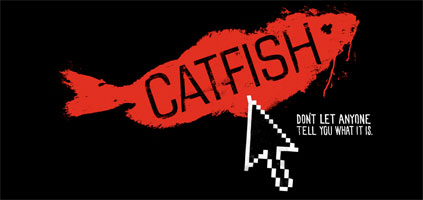
We’ve all come across people who exaggerate their physical attributes online. Usually, this is harmless e.g., when someone uses a profile photo from five years ago when they were much slimmer or pretends to be a couple inches taller than they really are. However, the scenario changes when someone makes up a completely fake identity and interacts with people online using that identity, a deception which is called “catfishing.”
The most well-known example of this lately has been in the form of Manti Te’o, a football player from Notre Dame. Te’o was involved with a woman online but he had never met her. She told him that she suffered from leukemia and was involved in a car accident that put her in a coma. Eventually, she died and Te’o announced to the world that he had lost his girlfriend. Later, it was revealed that this woman had never actually existed; the whole thing had been an elaborate hoax from beginning to end and Te’o had fallen for it. When it was discovered that Te’os girlfriend didn’t exist, he was accused of perpetrating the hoax. He later went on the record to explain what had really happened—how he had only had an online relationship with this woman and whoever was behind her online identity had succeeded in “catfishing” him.
Te’o is an adult but imagine the consequences if such a thing happened to your child. Recently, law enforcement agencies in Florida launched an operation to catch child predators lurking online. They made these predators believe they were talking to children or parents willing to sell their children for sex. By using this technique, they caught a middle school teacher, a tourist visiting from Turkey, a businessman from North Carolina and many college students. Most of these predators were pretending to be someone they weren’t; they were “catfishing” young people, pretending to be their age or at least closer in age to them.
Often, these predators use a false persona, build up relationships with children and teens online and eventually set up a time to meet them, at which point the physical abuse takes place and it’s too late to prevent it. So it’s best to employ some digital parenting skills at this point; speak to your child and let him/her know that everything s/he sees online should be taken with a grain of salt. Photos can be taken from someone else’s profile or from various other sources and all the other information can be made up. If someone seems too good to be true, they might be.
The MTV show Catfish is dedicated to exposing catfishing scams. On TV, the issue might come across as funny because the people concerned are adults and they’re meeting in a safe, neutral environment created by the producers of the show. However, in real life, especially when it concerns kids, this is anything but a laughing matter. The best thing is to advise your child to stay away from strangers, not just on the street but also online. Many online predators target children who seem to be the victims of cyberbullying. They listen to them, encourage them and tell them they believe in them. They appear to be true friends until the fateful moment when fake friendship turns into abuse.



